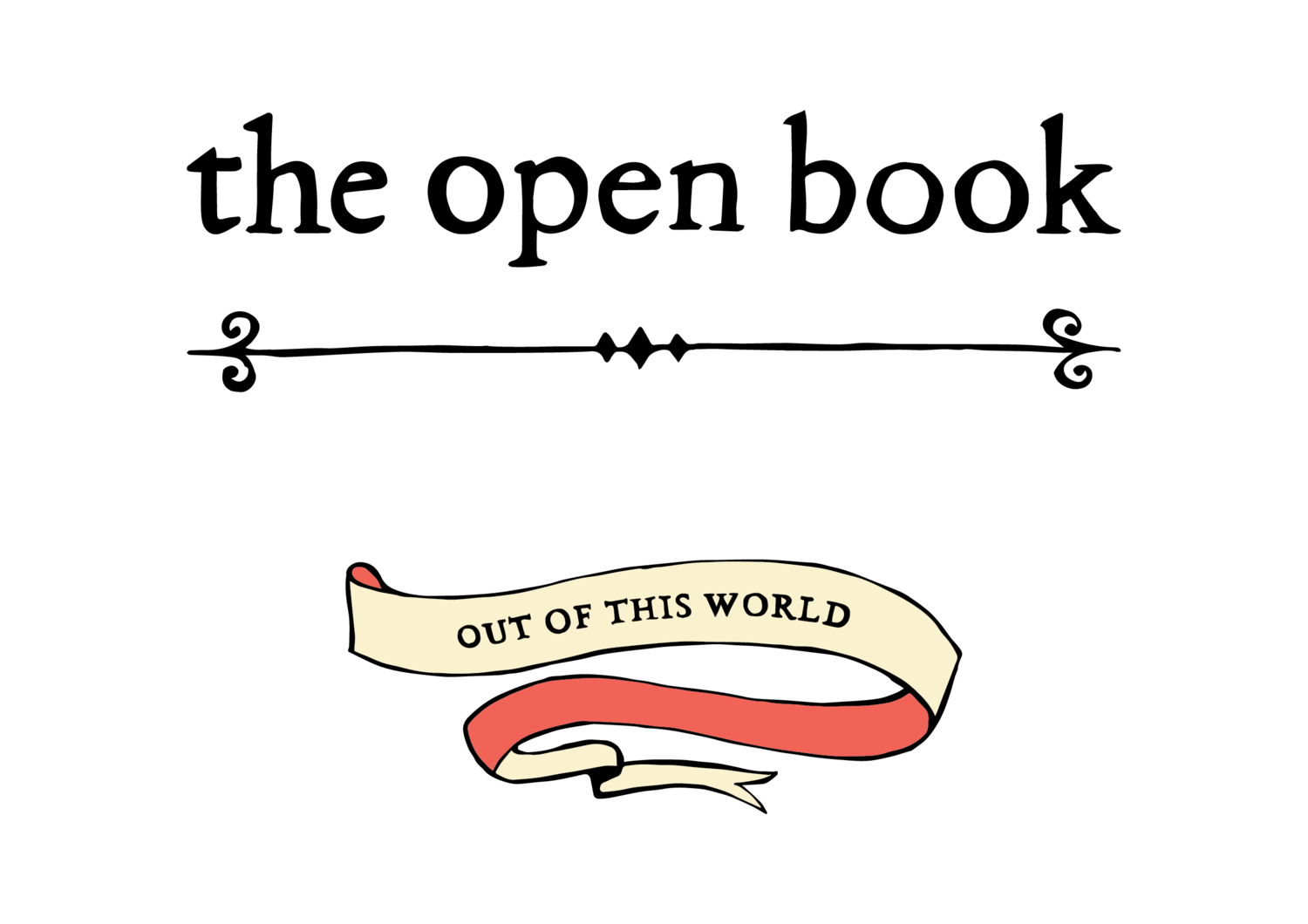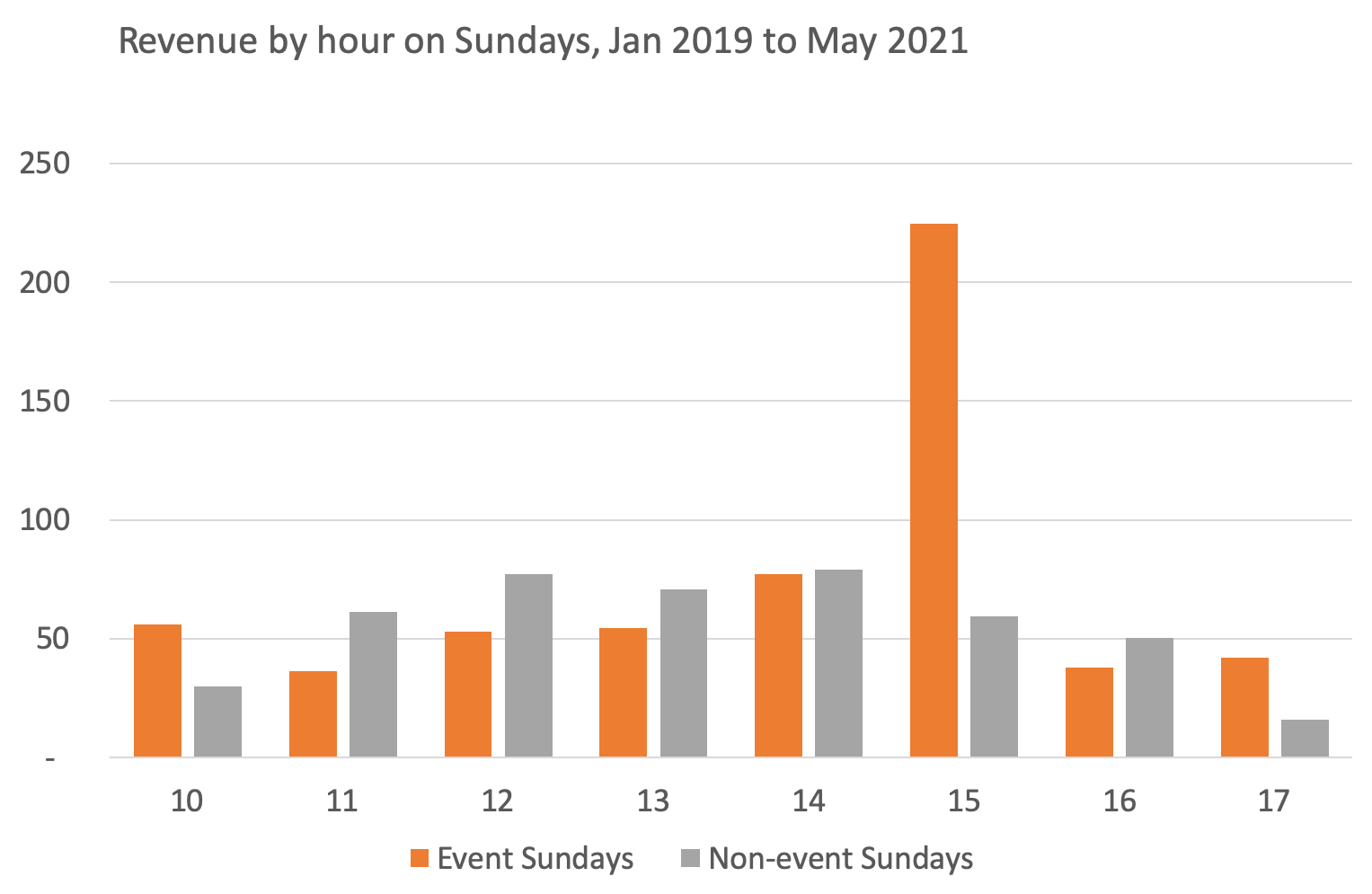One of the joys of owning a secondhand bookstore is that we can provide a stage for literary culture. To make that joy real, Anna, our dedicated events curator, has been organising events since August 2017 as part of a series called Ears Wide Open.
In normal times, we hold them each month from February or March until December. They are typically on Sunday afternoons at 2pm and feature some local writers reading their work and sometimes a musician or two.
While the monthly events are a good thing in themselves, and we'd dedicate this small amount of time in the bookstore calendar to them either way, we have sometimes wondered whether they reduce sales or increase them. They might boost sales by bringing more customers in to store. They might also reduce sales by blocking the counter and the front room with enthusiastic listeners during the time that the reading is on. The question is whether the hypothetical sales-boosting effect is bigger than the hypothetical sales-reduction effect.
We can't directly track revenue generated by or deterred by events. But what we can do is compare total Sunday revenue for days with and without and see what we can see.
Not all Sundays
Below is the revenue from 126 Sundays, from January 6 2019 to May 30 2021. The ones in orange were Sundays with events. The blank spaces are the 11 weeks we were closed at Alert Levels 3 or 4, and the Easter Sundays in 2019 and 2021 (Easter Sunday 2020 was also in Level 4). The blue bars show the revenue on the 99 Sundays that did not have events. We sometimes hold events on other days too: they aren't included here. The numbers exclude GST.
You can see that we haven't held many events overall of late, just 14 in the last two and a bit years. The situation in 2020 put paid to the dreams of many an organiser of cultural extravanganzas, including us. If you look carefully, you can also see the periods in the summer when our events curator takes a well-earned hol.
It isn't immediately obvious from this chart whether events are good or bad for revenue. You can see that two of our five best Sundays did have events, but also there are lots of events on Sundays in 2019 that seem pretty undistinguished from a revenue point of view.
Clearer
The next chart makes things a bit more obvious. It shows average revenue for all Sundays when we were open in the last two and a bit years, distinguishing the 14 Sundays with events from the 99 Sundays without them. The conclusion is clear: we make roughly $140 extra dollars on Sundays with events. (If we minus off the costs of the snacks and the wine, it would be a slightly less rosy picture, but still rosy: we drink pretty cheap wine :-).
Break down
This is the revenue for each of the 14 events, as compared with the average Sunday without events. You can see that there was one standout day (which was the launch of this anthology), but generally revenue on event days has been somewhere between about half and double the average Sunday. Eight of the 14 events have had above average revenue, and six have had below or about average revenue. Even if we exclude the very best event day from the numbers, I can see that we still do better on event Sundays than non-event Sundays.
It does seem a bit unpredicable as to what will be an above-average event and what will not. The worst-performing Sunday was in July two years ago, where our poetry event clearly did not pull in the patrons. But other events with that same format had much better results. We always encourage our performers to bring along their crowd but we don't actually count the number of people at events. Perhaps that would be an innovation to consider.
Time of day
One other interesting question is whether we can spot the 2pm slow down in the data. And unexpectedly the answer is that we cannot. The chart below shows revenue by hour (from 10am to 5pm) on the same 113 Sundays that we were open. You can see that revenue between 2pm and 3pm is the same on event Sundays and non-event Sundays, and that on event days we have a big boost in sales once the event is over. That big post-even boost is the reason why events boost our Sunday revenue overall.
I am not quite sure why revenue at 2pm would be the same with or without an event. The data is quite ropey at this level of disaggregation for the event Sundays, because there are only 14 datapoints to go on. So it could be just a coincidence. It might also be that we still make some sales in the 2pm to 3pm timeslot because the event does not last an hour, or it does not start right at 2pm. And I can see that on our best-ever event Sunday, we had a lot of sales between 2pm and 3pm and that could be influencing the numbers to some extent.
Of course, we might make even more revenue if we held events outside store hours and didn't have to worry about the pause. Then we could get the best of both worlds. But overall, it seems like Sunday events at 2pm are good idea, especially with people who will draw a crowd. Seems just as well.




